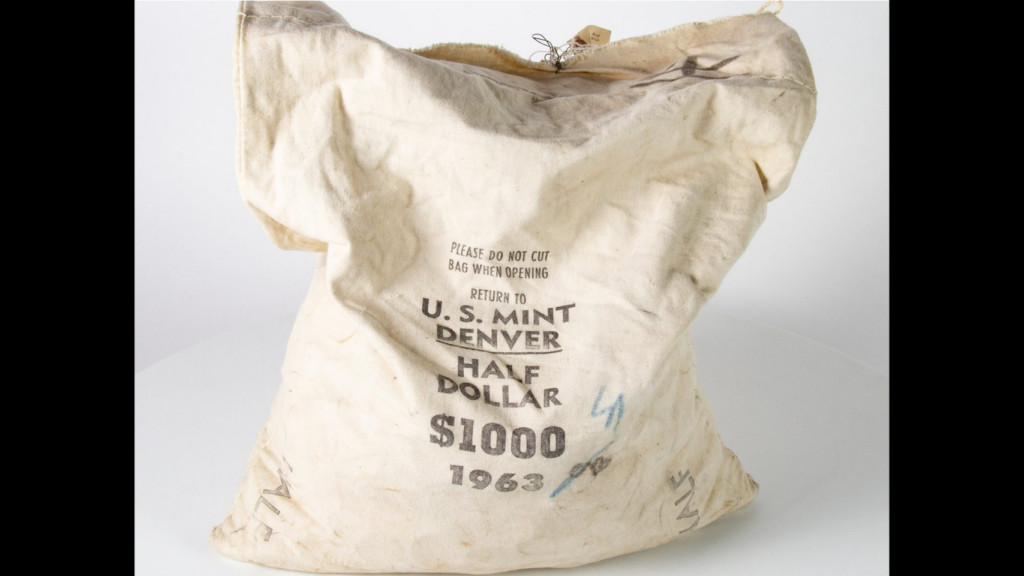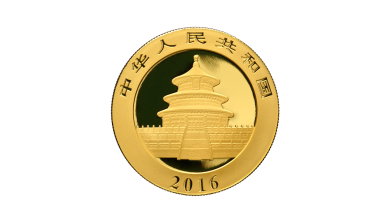Oklahoma Woman’s Bag of “Junk Silver” Coins Worth More Than 17 Times Face Value

A bag of “junk silver” given to a woman by her father more than 50 years ago is now worth at least five figures.
The Oklahoma woman received a bag of 2,000 silver half-dollar coins as a gift back in 1970. While the face value of the coins is just $1,000, the silver alone is worth over $17,800.
And because the coins are still in the original mint-sealed bag, they could fetch up to over $100,000 at an auction.
Rick Tomaska, co-founder of Rare Collectibles TV, said, “This is undoubtedly one of the last if not the very last known surviving, mint-sealed bag of 1963 Denver Mint Franklin half-dollars. The woman told me she kept it all these years because she loves silver.”
This reveals the difference between real money and fiat currency issued by the US government today.
The half-dollar coins in the bag were minted in Denver in 1963 when American coins were still made primarily out of silver.
That changed when President Lyndon B. Johnson signed the Coinage Act of 1965, setting into motion five decades of currency debasement that continues today. Under the law, silver dimes and quarters, and half-dollars no longer contain silver. Instead, the Treasury mints coins made of “composites, with faces of the same alloy used in our 5-cent piece that is bonded to a core of pure copper.”
Today, we call pre-1965 dimes and quarters “junk silver,” but we really should call modern coins junk.
Johnson promised removing silver would have no impact on the value of US coinage. “[The] Treasury has a lot of silver on hand, and it can be, and it will be used to keep the price of silver in line with its value in our present silver coin,” he said.
The reality turned out a lot different, as Seth Lipsky explained in a Wall Street Journal column.
When LBJ signed the 1965 act, the value of a dollar was almost exactly the same as it had been in 1792—0.77 ounces of silver. Despite some downs and ups, on average it had been remarkably steady for the long span…
“The value of the dollar started sinking after the 1965 coinage act, and by 1980 the dollar—so long valued at 0.77 ounces of silver—plunged to 0.02 ounces of silver. Today it is valued at 0.06 ounces of silver.”
Johnson also claimed silver coins would “very definitely” not disappear or “even become rarities.”
Wrong again.
As the value of the silver in pre-1965 quarters and dimes increased, demand for the coins skyrocketed right along with it. People began holding on to them. Today, finding an old silver dime or quarter in circulation is a rare treat. In fact, they have become so rare in the “wild,” investors now buy bags of “junk silver” as a way to preserve wealth in the face of continuing debasement.
Financial analyst Robert Prechter summed up the impact of the Coinage Act of 1965 beautifully.
The year 1965, then, marked the official end of money usage in America. That’s when the Fed’s notes and the Treasury’s tokens became the official currency, unredeemable in anything. The dollar became merely an accounting unit. The government was now fully free to extract value from its citizens’ savings accounts through the process of issuing debt and having the Fed turn it into checking accounts.”
“The change in 1965 shifted the basis of the nation’s accounting unit from money to the policies of politicians and central bankers. It set the government and the Fed completely free to create and spend new accounting units at their pleasure.”
The government and the Fed have done just that, and that’s why a $1,000 bag of coins is now worth more than 17 times face value.
The elderly Oklahoma woman will benefit from holding on to real money. The rest of us are paying the price for failing to do so.
Call 1-888-GOLD-160 and speak with a Precious Metals Specialist today!
Buka akaun dagangan patuh syariah anda di Weltrade.
Source link







